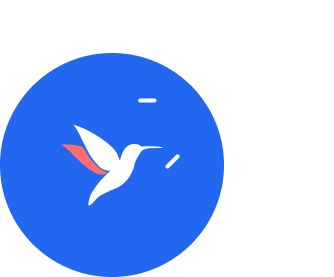
Select a category, click your preferences, discover your best bank options, and switch seamlessly in just a few clicks.
We help you compare and switch to the best financial providers in minutes.
How It Works
- 1. Select a category (fees, rewards, travel, etc.).
- 2. Answer a few quick questions about your banking needs.
- 3. Get personalized recommendations based on your answers.
- 4. Submit your details to switch seamlessly.
Overdraft vs Personal Loan vs Credit Card
Overdraft vs. Personal Loan vs. Credit Card: Which One Should You Choose?When you need access to extra cash, you have several borrowing options—but which one makes the most sense for your situation?An overdraft, personal loan, and credit card each work differently in terms of cost, flexibility, and repayment structure. Understanding these differences can help you choose the most cost-effective and practical option for your needs.This guide breaks down how each facility works, what it costs, and when to use it—so you can borrow smartly and avoid unnecessary debt.What is an Overdraft?An overdraft is a credit facility linked to your bank account, allowing you to spend beyond your available balance up to a pre-approved limit. It’s designed for short-term borrowing and offers instant access to funds.Key Features of an Overdraft:✔ Flexible borrowing – Access funds as needed, only paying interest on the amount used.✔ Revolving credit – Once repaid, funds become available again.✔ Instant access – No need to apply for new credit each time.✔ Interest applies only on usage – If you don’t use it, you don’t pay interest.Overdraft Costs & Fees:• Interest Rate: Higher than personal loans (often 15%-20% per year).• Monthly Fees: Some banks charge a service fee to keep the facility open.• Penalty Fees: If you exceed your limit, additional fees may apply.💡 Pro Tip: Overdrafts work well for covering shortfalls between paydays, but high interest rates make them expensive if used long-term.What is a Personal Loan?A personal loan is a fixed amount borrowed from a bank or lender, which you repay in monthly instalments over an agreed period. Unlike an overdraft, it does not automatically refresh once repaid.Key Features of a Personal Loan:✔ Fixed repayments help with budgeting as monthly instalments remain the same.✔ Lower interest rates – Typically lower than overdrafts (around 9%-18% per year).✔ Larger loan amounts – Ideal for major expenses like home improvements or medical bills.✔ Longer repayment terms – These usually range from 12 months to 5 years.Personal Loan Costs & Fees:• Interest Rate: Usually lower than overdrafts and credit cards, but it depends on your credit score. • Initiation Fee: A one-off charge when the loan is granted. • Early Settlement Fee: Some banks charge a fee if you pay off your loan early.💡 Pro Tip: If you need a larger amount of money for a planned expense, a personal loan is often the cheapest option with structured repayments.What is a Credit Card?A credit card gives you access to revolving credit, where you can borrow up to a set limit and either pay off the balance in full or in instalments. Many credit cards come with rewards programs, cashback, or travel benefits.Key Features of a Credit Card:✔Flexible spending: Can be used anytime, with funds replenishing as you repay.✔Interest-free period: If you pay the full balance by the due date, you avoid interest.✔Rewards programs: Some credit cards offer cashback, points, or travel benefits.✔Global acceptance: Useful for online purchases and international travel.Credit Card Costs & FeesInterest Rate: Higher than personal loans but lower than overdrafts (typically 15%-25% per year).Annual or Monthly Fees: Premium cards may have higher fees in exchange for better rewards.Late Payment Fees: If you miss a payment, penalties and increased interest rates may apply.💡 Pro Tip: Credit cards are great for everyday purchases and earning rewards, but if you only pay the minimum amount each month, interest charges can add up quickly.Overdraft vs. Personal Loan vs. Credit Card: Which One is Best for You?💡 Pro Tip: If you need consistent access to extra cash, an overdraft or credit card is better. If you need a one-time lump sum with structured repayments, a personal loan is the smarter choice.When Should You Choose an Overdraft?✅ You need short-term flexibility. If your income varies month to month, an overdraft helps cover gaps.✅ You don’t want to apply for new credit every time – Once set up, the funds are available as needed.✅ You can repay quickly – Overdrafts are expensive if kept for too long, so they’re best for quick repayments.🚨 Avoid an overdraft if:❌ You struggle to repay debts quickly.❌ You need a large amount of money for a big purchase.When Should You Choose a Personal Loan?✅ You need a structured repayment plan – Fixed payments make budgeting easier.✅ You want a lower interest rate – Overdrafts and credit cards can be costly if not paid off fast.✅ You’re making a large purchase – Personal loans are ideal for funding major expenses.🚨 Avoid a personal loan if:❌ You only need a small amount of credit for a short time.❌ You can’t commit to fixed monthly repayments.When Should You Choose a Credit Card?✅ You want a flexible credit option – Great for ongoing purchases without reapplying for loans.✅ You want to earn rewards – Cashback, travel perks, and discounts can add value.✅ You can pay the balance in full each month – This avoids high-interest costs.🚨 Avoid a credit card if:❌ You only make minimum payments – The interest can add up fast.❌ You tend to overspend – Credit limits can tempt some people into excessive debt.Final Thoughts: Which One Should You Choose?✔ For short-term cash flow needs, an overdraft offers flexibility but should be repaid quickly. ✔ For a planned large expense, a personal loan is more structured and cost-effective. ✔ For everyday spending and rewards, a credit card is useful—if managed responsibly.📌 Need to compare personal loan offers, overdraft facilities, or credit cards?👉 Use Click to Switch to find the best banking solutions for your needs!